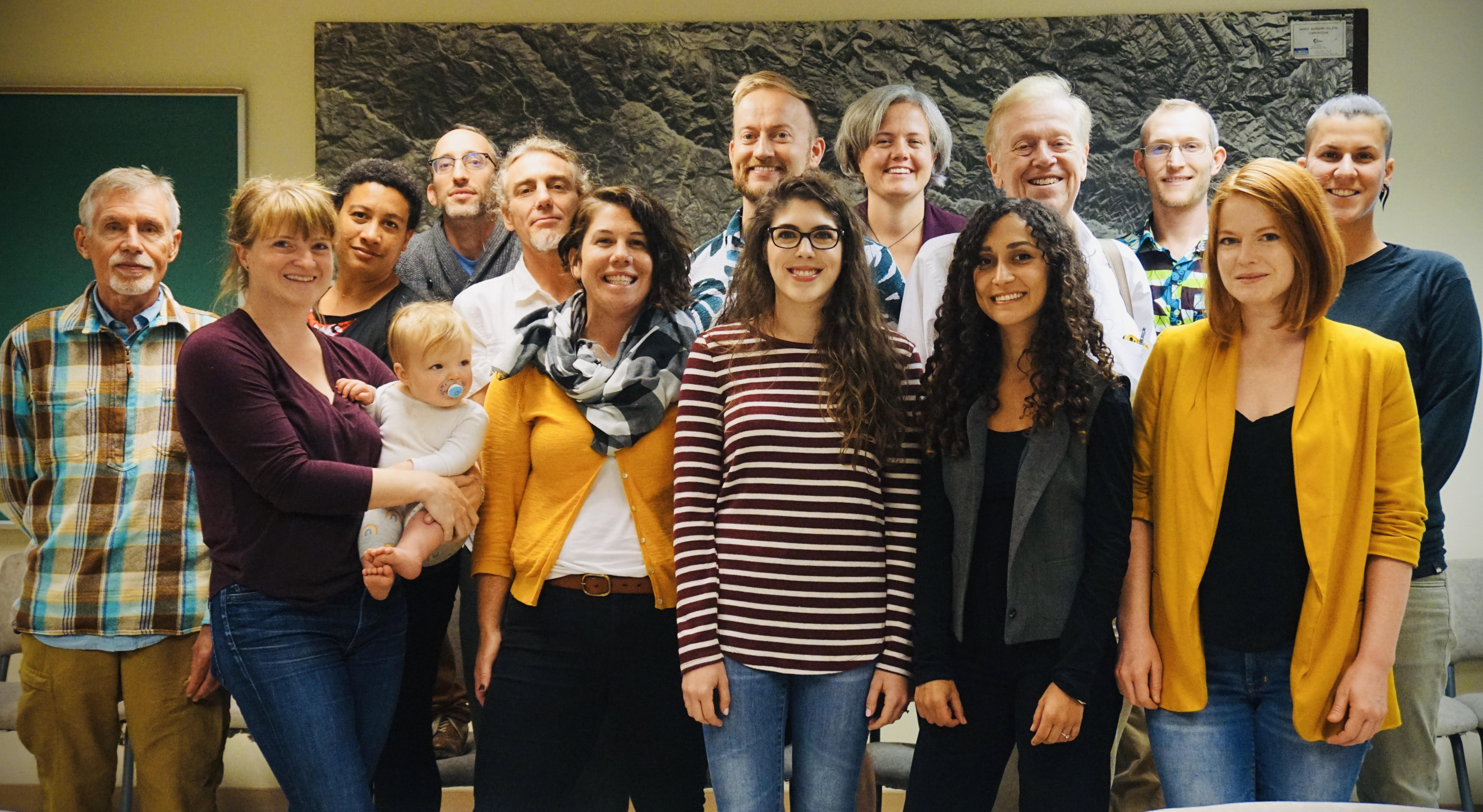Evolutionary Anthropology • Biological Anthropology
Behavioral Ecology • Evolutionary Psychology • Human Biology

Faculty:
- Amy Boddy
- Steven Gaulin
- Michael Gurven
- Douglas Kennett (Archaeology)
- David Lawson
- Nic Thompson Gonzales
- John Tooby
- Leda Cosmides (Associated Faculty, Department of Psychological and Brain Sciences)
About IAS
The Integrative Anthropological Sciences (IAS) unit is internationally recognized as a center of excellence in ecological anthropology, human behavioral ecology, evolutionary psychology, primatology, and human biology. Its flourishing community of faculty, graduate students, and post-doctoral fellows join ecological and evolutionary perspectives to frame and test hypotheses about diverse aspects of human nature and culture. The challenges of the 21st century require scholarship that is solidly grounded in both the natural and the social sciences. Thus, IAS’s overarching vision is to return anthropology to the forefront of the human sciences by integrating knowledge and methods not only from different branches of modern anthropology, but equally from other scientific fields including ecology, evolutionary biology, economics, sociology, cognitive science, developmental biology, immunology, game theory, psychology, neuroscience, demography, bioinformatics, and political science. To remain relevant, anthropology must not only embrace the scientific advances in collateral disciplines; it must contribute to them. Moreover, IAS members reject an artificial division between “sociocultural” and “biological” approaches because many phenomena of interest to anthropologists (e.g., ecology, demography, medical anthropology, cognitive anthropology, biomedicine, nutrition) are the outcome of both cultural and biological processes. For similar reasons, methodological pluralism (e.g., ethnography, experiments, behavioral observation, surveys, GIS) will be necessary to tackle this century’s complex problems.
IAS currently houses several laboratories and research groups focused on human behavior, biology and psychology:
(1) The Biobehavioral Health Laboratory analyzes urinary, blood and salivary biomarkers of stress, nutritional status, infection, and hormonal status, as well as standard anthropometrics and energetics.
(2) The Center for Evolutionary Psychology uses experimental approaches to unpack the cognitive architecture underlying human social behavior.
(3) The Evolutionary Anthropology and Biodemography Research Group employs field studies to understand behavioral and cultural variation in ecological context.
IAS faculty have central roles as founders, directors, or core members of UCSB’s prestigious Center for Evolutionary Psychology and the new Broom Center for Demography. UCSB is also co-home to the ongoing NIH/NIA-supported Tsimane Health and Life History Project.
Active field sites are currently located in Bolivia, Ecuador, Venezuela, Uganda, Peru, Honduras, and Tanzania.
The IAS Graduate Program promotes regular interaction among its members to explore new directions and research interests, especially in the weekly IAS Reading Group attended by all faculty, post-doctoral fellows, and graduate students.
Ph.D. students in IAS can elect to simultaneously earn certificates in Cognitive Science, Quantitative Methods in the Social Sciences, or Demography.



